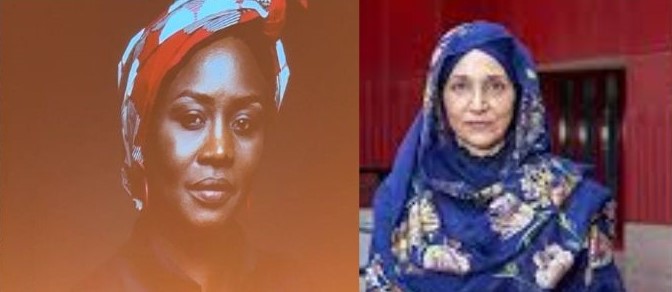Authors Leila Aboulela and Stella Gaitano were jointly honored with the PEN Pinter Prize 2025 in a ceremony at the British Library on Friday, united by their shared roots in Khartoum and their literary explorations of identity, migration, and displacement.
Aboulela, named the annual prize winner, selected Gaitano as her co-recipient for the Writer of Courage award, which is shared with the main winner. The Writer of Courage is awarded by English PEN to an author who is active in the defense of freedom of expression, often at great personal risk.
In her address, Aboulela announced Gaitano as her chosen co-winner, praising her as a “principled writer and a fearless activist.”
“It is an honour and a pleasure to share my prize with Stella Gaitano, a writer I have admired and read avidly over the years,” Aboulela said. “Reading her work has opened my eyes to the injustices and consequences of war in Sudan. She is a wonderful, enriching writer who has already broken new ground in African literature.”
Gaitano, a South Sudanese writer, journalist, and human rights activist, was born in Khartoum in 1979. She studied English and Arabic at the University of Khartoum and trained as a pharmacist. Following the partition of Sudan in 2011, she moved to Juba, the capital of South Sudan.
However, her outspoken criticism of the new South Sudanese government, which she accused of mismanagement, corruption, and fueling civil war, led to harassment and attacks. She returned to Khartoum in 2015. In 2022, she was awarded a fellowship from the PEN International Writers-in-Exile programme and relocated to Germany.
Gaitano writes in Arabic and has published two short story collections and two novels. Her first novel, “Edo’s Souls,” translated by Sawad Hussain and published by Dedalus Books, was awarded a PEN Translates grant in 2020, making it the first novel from South Sudan to be published in the United Kingdom.
In a powerful acceptance speech, Gaitano framed the award as one of survival.
“I am honoured that Leila Aboulela has chosen to share this award with me,” Gaitano said. “It might seem like happy news, but when I think about how I might not have been here to witness it, it brings tears to my eyes. This is not only an award for courage, but also one for survival.”
She dedicated the prize to writers in Sudan, South Sudan, and around the world who face persecution. “Telling the truth can risk such threats,” she said. “But it can also shake the authority that refuses to accept it, grant light and freedom, and promise a better tomorrow. An act with such power is worth the risk.”
Leila Aboulela, who grew up in Khartoum and has lived in Aberdeen, Scotland since 1990, is the author of six novels, including “River Spirit,” “The Translator,” and “Lyrics Alley,” which won the Scottish Book Awards for Fiction. She was the inaugural winner of the Caine Prize for African Writing and is a Fellow of the Royal Society of Literature.
The PEN Pinter Prize was established in 2009 by the charity English PEN in memory of the Nobel Prize-winning playwright Harold Pinter. The event also featured a tribute to Aboulela, delivered by writer Sabrina Mahfouz. Radio Tamazuj






